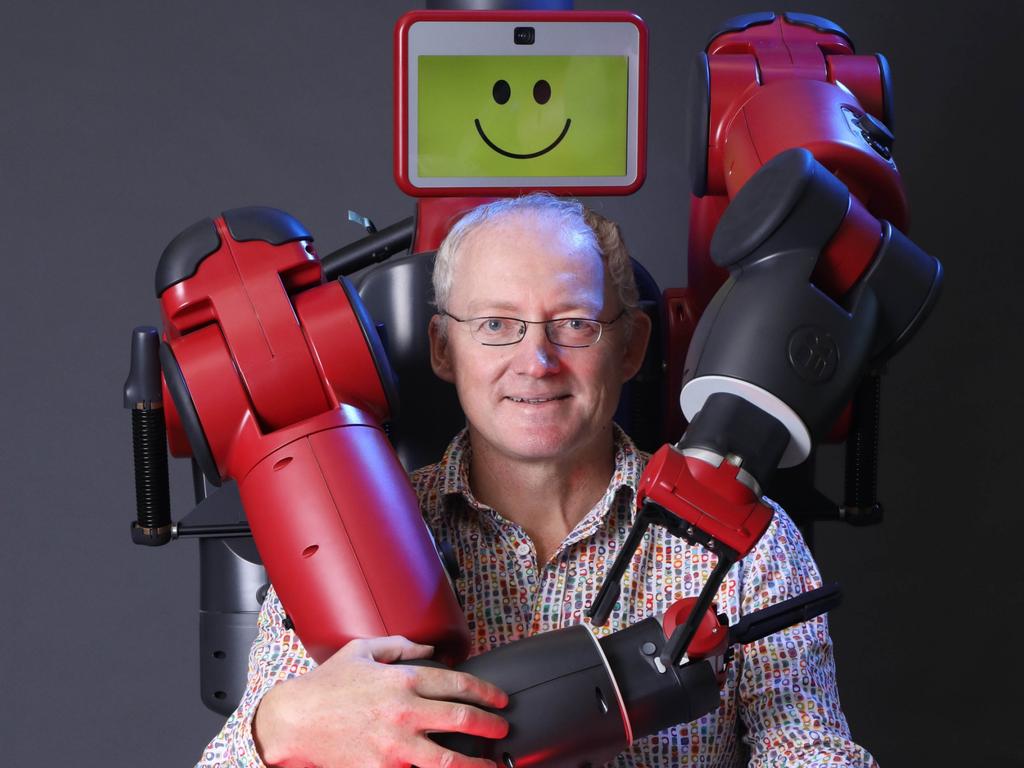AI isn’t causing job losses – just ask the nation’s bean counters
Generative AI isn’t replacing jobs, if anything it is actually helping staff increase their productivity.

Generative AI has a PR problem.
Many people, perhaps understandably, are worried the technology’s ability to automate tasks and functions means people will be replaced by technology.
But if you ask the people holding the purse strings at Australia’s biggest corporations, you’ll see this simply isn’t true.
The latest edition of our biannual survey of chief financial officers from major Australian listed companies across different industries has shown that enthusiasm for AI is growing at a clip – but the main appeal is its ability to enhance the productivity of employees, rather than replace them.
In the six months since the last survey, the number of CFOs who expect GenAI to “substantially transform” their industry in the next one to five years has leapt from 57 per cent to 78 per cent – a watershed moment for the technology, which has had its sceptics since it catapulted into the public eye around two years ago.
Part of the appeal of GenAI is, of course, its potential to reduce costs – more than half of the surveyed CFOs say they are using it to keep a lid on cost growth within their own finance function.
What is also clear is that CFOs don’t see GenAI as a tool for replacing work, they see it as a tool for replacing hours of work. Some 50 per cent of CFOs have already begun using AI to improve productivity, with a further 34 per cent planning to join them.
Many decision-makers at businesses big and small have already seen GenAI deliver real productivity gains. At Deloitte we’ve recently rolled out our MyAssist GenAI platform to our 13,000-strong workforce.

A pre-launch trial of the platform saw a strong majority of users report an improvement in both productivity and work quality, with particular benefits relating to its ability for coding assistance and information gathering. Nine out of 10 users claimed they’d be willing to pay $10 a month out of pocket to use it.
Given the clear productivity benefits of the technology, the real quandary for all businesses lies in determining what they do with all the liberated hours GenAI provides. For some, this is simple. In a healthcare context, for example, GenAI could streamline a doctor’s or nurse’s administrative duties, freeing up time they could dedicate to patients or other tasks.
In other work contexts, realising those productivity gains is a little harder. Within the context of a CFO’s finance function, GenAI means you are likely to see employees dedicate less time to the laborious process of producing financial reports and more time analysing the figures within to produce new insights. These two tasks are related but require a different skillset.
It is no surprise then that two-thirds of CFOs are adapting their talent strategies in response to the emergence of GenAI. This includes upskilling and reskilling (14 per cent of respondents), while a smaller number have progressed further and are redesigning work processes to leverage GenAI (12 per cent) and assessing targeted talent acquisitions (8 per cent).
In our experience, upskilling employees to ensure they know how to use AI is crucial. More than half of the people at Deloitte have completed some form of GenAI training. We’re also redesigning several internal processes at the firm from the bottom up to maximise the benefits of AI – it’s not a plug-and-play technology.
What the one-third of CFOs who are not updating their talent strategies in response to AI don’t realise is that before long, they won’t have a choice. Third parties that build CRM and finance platforms that almost every company across the world use are investing heavily in GenAI and are rapidly embedding it into their systems.
Soon, basic AI literacy will be a must-have for anyone interacting with these programs.
But this should be viewed as an opportunity, and not something to be afraid of. If employers and employees collaborate to establish the best-use cases for GenAI at work, to upskill and reskill together, and establish what to do with all the hours the technology saves, we will all benefit from increased productivity and time saved at work.
Dennis Krallis is Deloitte Australia’s chief strategy and transformation officer






To join the conversation, please log in. Don't have an account? Register
Join the conversation, you are commenting as Logout